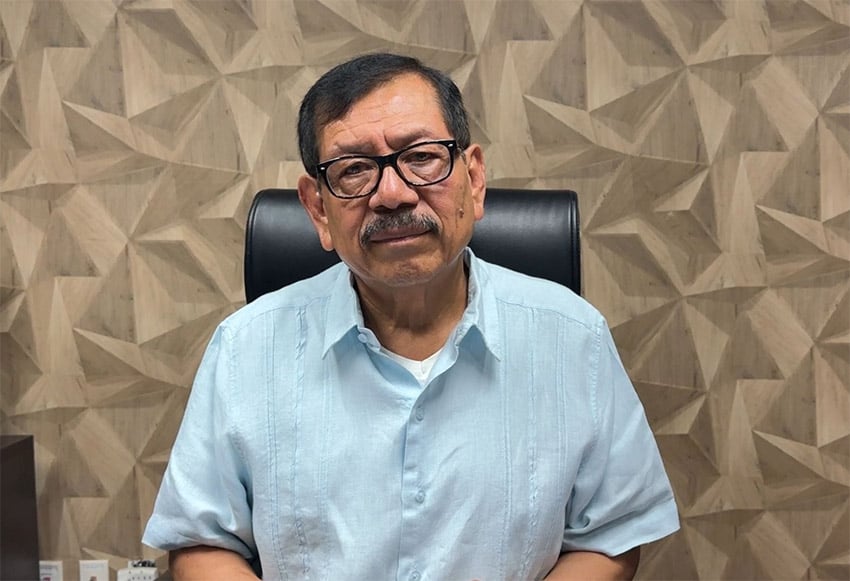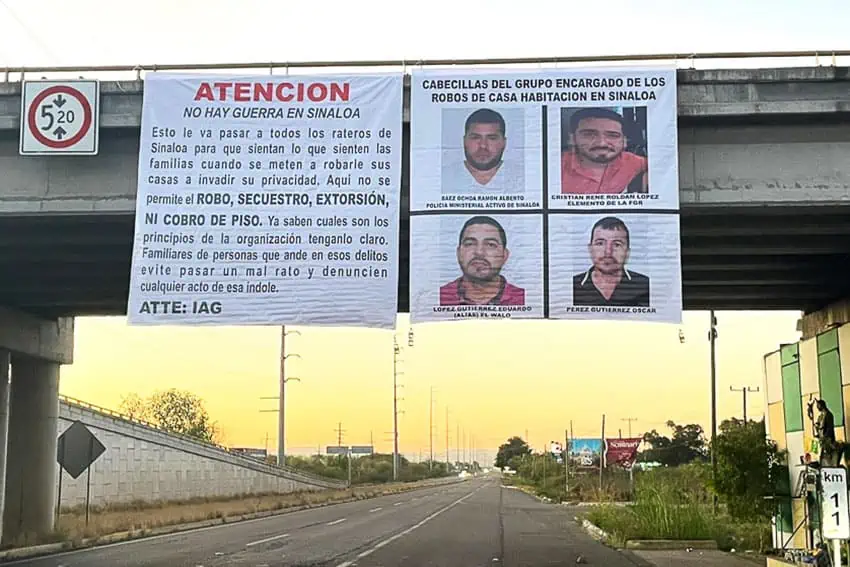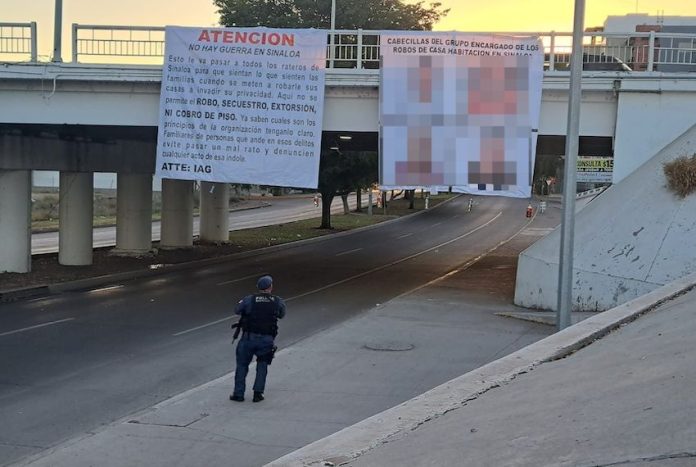Officials in the northwestern state of Sinaloa reported on Sunday that all 66 victims of a mass kidnapping in Culiacán are now accounted for, more than two weeks after they went missing.
State Public Security Secretary Gerardo Mérida Sánchez told reporters that the remaining eight kidnap victims were back home and were deemed to be in good health.

Mérida called the case “atypical,” explaining that none of the victims wanted to file charges, the newspaper Expansión reported.
“This [case] is atypical for Sinaloa as well as for the rest of the Republic,” Mérida said. “This doesn’t happen here on a daily basis. Well, in some states it doesn’t.”
The 66 victims went missing on March 22 — most of them abducted directly from their homes — and two days later, 58 had been released in two separate actions, the German newspaper DW reported on March 25.
On March 26, Culiacán awoke to multiple “narco banners” strung around the city with the faces of some of the still-missing hostages.

The signs vowed retribution “to all the thieves in Sinaloa,” warned that “robbery, kidnapping, extortion [and] collection of protection money aren’t allowed here,” and urged residents to report any act of that kind. They were signed with the initials of the son of “El Chapo” Guzmán, who is also a leader of the Sinaloa Cartel subgroup known as Los Chapitos.
Initially, authorities blamed a clash between rival criminal organizations. The day after the kidnapping, an Army contingent exchanged fire with armed civilians presumed responsible for the crime in Culiacán. The shoot-out resulted in the death of at least one soldier, reported the newspaper El Universal on March 25. Authorities have not confirmed whether those involved in the March 23 confrontation are connected with the kidnapping.
Sinaloa Governor Rubén Rocha was the subject of much criticism after addressing the mass abduction by saying “Sadly, these things happen” before urging residents not to be afraid.
On Sunday, Rocha expressed gratitude for the return of the final eight victims, thanking the authorities involved in the operation, including the Defense Ministry, Public Security Secretary Rosa Icela Rodríguez, the National Guard and President Andrés Manuel López Obrador.
Upon questioning from reporters, Mérida declined to provide further information on the kidnapping, saying his office was continuing to investigate.
“I can’t provide additional details,” Mérida told reporters, “as this is an open investigation. The [state Attorney General’s Office] will determine when such information can be made available.”
The news site Infobae reported that state authorities had begun pursuing new leads during Easter Week, after reports that some of the final eight victims had already returned home, although no specifics were provided.
More than two weeks later, there is no substantiated explanation of why the victims were kidnapped. Rocha and Mérida have speculated that contrary to the statements on the narco banners, the kidnap was a cash grab — that criminals were looking to plunder the victims’ houses — but no evidence has been forthcoming.
With reports from Expansión, El Universal and DW
